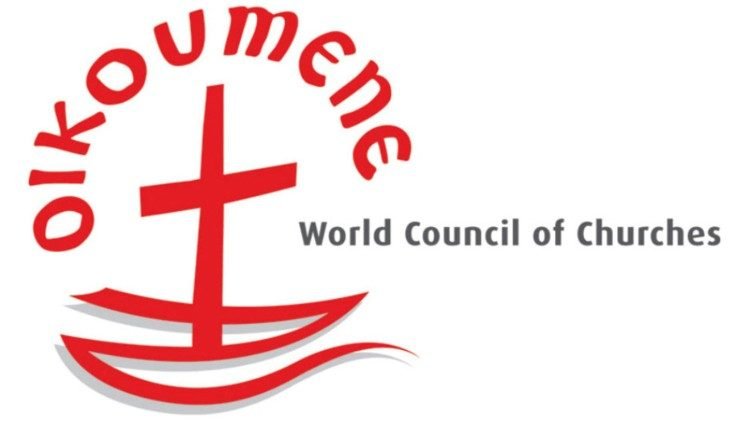As a delegation of the World Council of Churches concludes a four-day visit to Ukraine to explore possibilities of joint Church efforts to achieve a just peace for the Ukrainian people, Bishop Heinrich Bedford-Strohm, Moderator of the WCC Central Committee, says hopes are high that Churches can make a difference to end the war.
By Lisa Zengarini and Delphine Allaire
Following the solidarity visit in August 2022, a high-level delegation from the World Council of Churches (WCC) travelled again to Ukraine last week to explore possibilities of joint efforts to achieve a just peace for the besieged country and to renew relations with local Churches and religious organizations.
The visit took place on 10-13 May at the request of the WCC central committee, and is part of a series of visits intended to build bridges of peace and reconciliation amid the ongoing war in Ukraine through encounters and dialogues, also with Russian religious leaders.
During their stay, the members of the delegation led by WCC General Secretary Rev. Jerry Pillay, undertook an intensive series of consultations with local Church leaders, Ukrainian government officials, and others, in which they insisted on the need for unity and on the crucial role all Churches in Ukraine are called to play to end the war waged by Russia, and to promote a just peace for the people of Ukraine.
Meeting with leaders of the two rival Orthodox Churches in Ukraine
On May 11 they met with senior leaders of both the Ukrainian Orthodox Church (UOC) formally affiliated to the Patriarchate of Moscow and the autocephalous Orthodox Church of Ukraine (OCU), whose longstanding dispute has intensified since the Russian invasion.
The delegation confirmed the WCC’s readiness to host discussions among the two rival Churches for the resolution of the issues between them in view of fostering harmony among the religious communities of Ukraine which is an essential element for the national unity that the country so desperately needs in this critical moment.
For their part, the Ukrainian Orthodox leaders offered clear signs of their willingness to engage in dialogue, which according to the WCC, is “a sign of hope of healing one of the many wounds and divisions which this tragic conflict has deepened”.
The WCC delegation’s programme also included a visit to the Kyiv Pechersk Lavra, one of the holiest sites of Orthodox Christianity in the region and beyond, which over the past months has become the fulcrum of the tensions between the UOC and the OCU, in the context of government measures to remove the UOC’s institutions and monastic community from the site.
Meeting with Ukrainian Council of Churches and Religious Organizations
On the same day, the WCC delegation also met with Ukrainian Minister of Culture and Information Policy Mr Oleksandr Tkachenko and with members of the Ukrainian Council of Churches and Religious Organizations (UCCRO). At the meeting the Ukrainian religious representatives shared with the WCC delegation the experience of interfaith cooperation in Ukraine and spoke about the pastoral and humanitarian activities of Churches during the war, assuring that Ukraine ensures a high level of religious freedom.
Bishop Bedford-Strohm: Churches must make a difference to end the war
Speaking Vatican News’ Delphine Allaire, Bishop Heinrich Bedford-Strohm, a member of the delegation and the moderator of the WCC Central Committee, said the Council hopes that the openness to dialogue shown by the two Orthodox Churches in Ukraine may lead to talks also involving the Russian Orthodox Church and maybe “to finding solutions to some problems”.
In the interview, the German Lutheran bishop mentions this week’s visit to Moscow of Rev. Pillay who will be meeting with Patriarch Kirill, and with representatives from the largest WCC member Church to discuss a roundtable meeting to be held later in the year
“We hope that we can make a difference as Churches in a situation that is exclusively dominated by military action”, said Bishop Bedford-Strohm. “Defence, also military defence against the aggressor is necessary, but it cannot be the only thing. We also have to find ways of dialogue that will also open a post-war perspective and I think the churches must play a role in this”.



